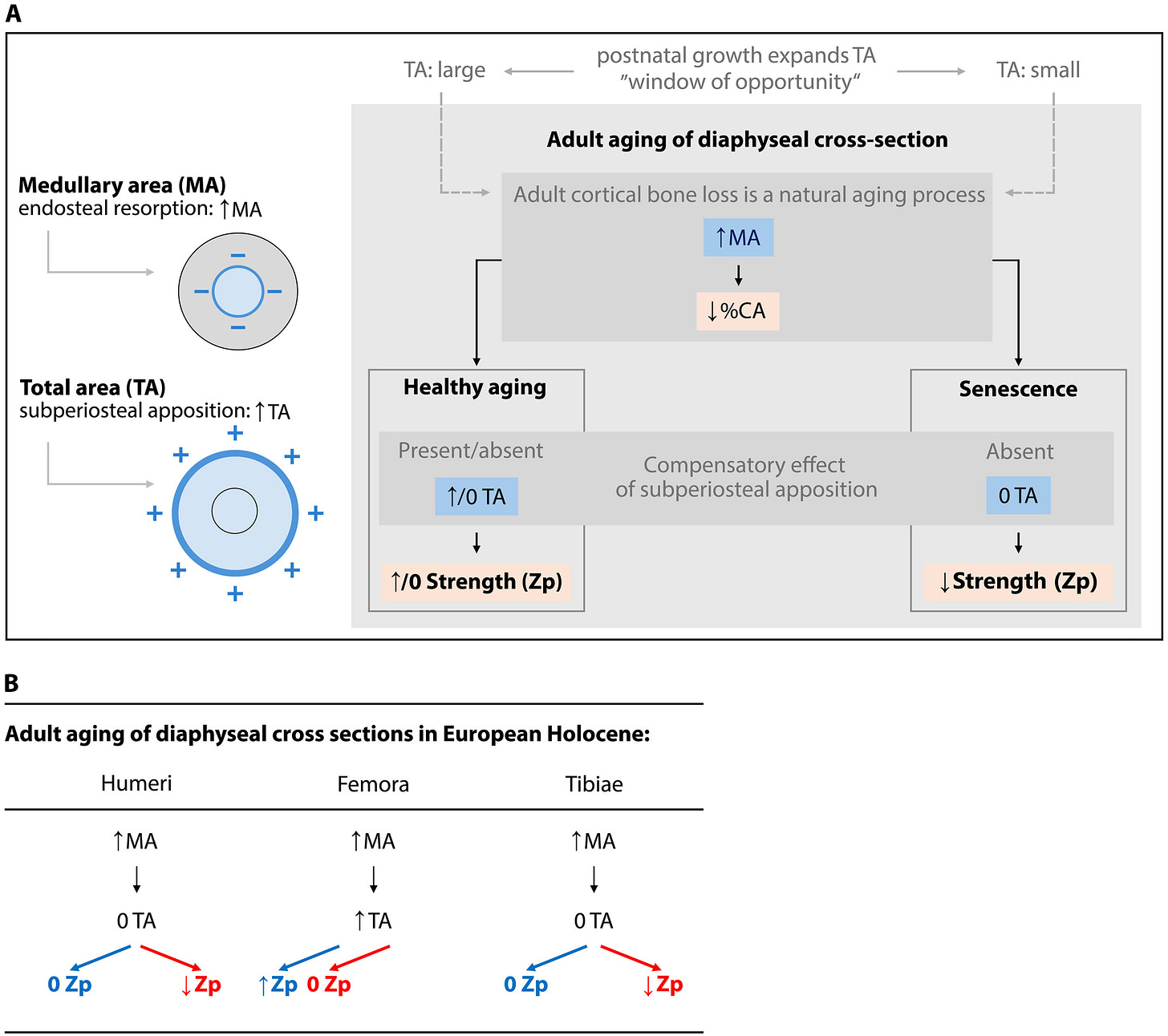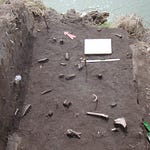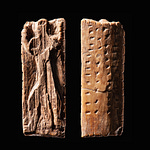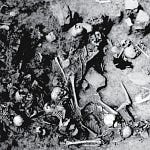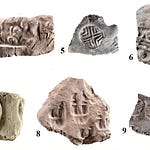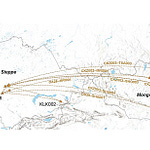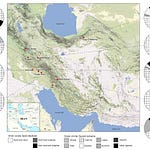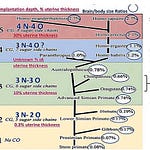The Body as a Record of Change
Every bone we carry is a living diary. Across decades, the tissue quietly writes its entries—marking childhood nourishment, adult labor, illness, and even the gradual softening of age. When archaeologists read these entries in ancient skeletons, they do not find a static pattern of decline but a history of adaptation: a conversation between biology and culture written in calcium and collagen.
A new study in Science Advances1 by Vladimír Sládek and colleagues at Charles University brings that story into striking focus. By examining nearly two thousand long bones from European Holocene humans, the team discovered that the weakening of bone with age—the gradual thinning of the shafts known as diaphyseal aging—has remained remarkably stable for the last 9,000 years.
That finding cuts against a familiar assumption: that modern sedentary lives, deskbound and mechanical, are uniquely to blame for our fragile bones. Instead, the researchers suggest, bone aging is an ancient biological rhythm, only modestly tuned by cultural shifts in how humans move, work, and grow.
“The skeleton is not simply a passive archive of lifestyle,” says Dr. Lucia Bernardi, a biological anthropologist at the University of Bologna. “It’s a responsive organ shaped by energy, diet, and social roles. What we see in Holocene bones is the long dialogue between genes and culture.”



